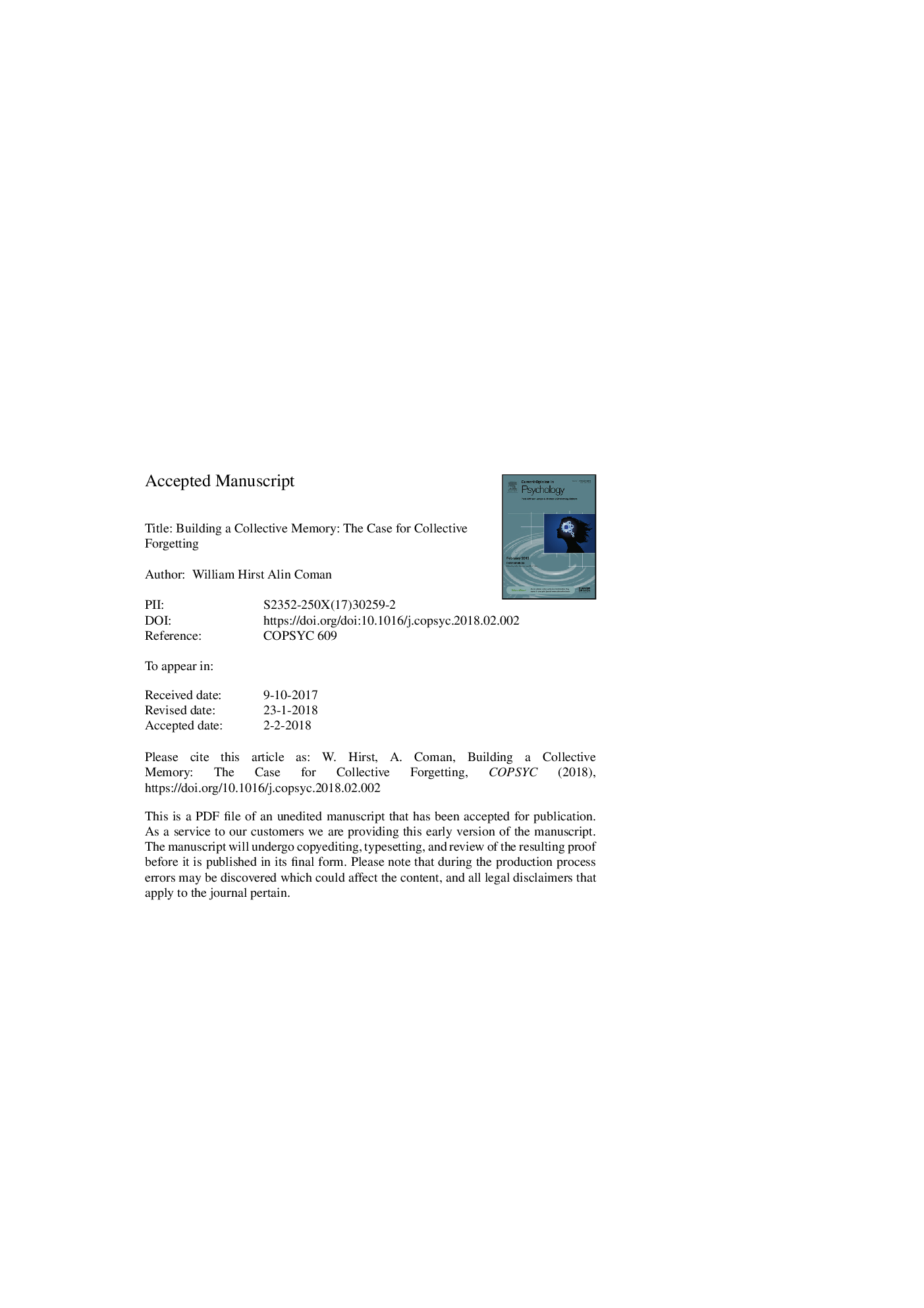| Article ID | Journal | Published Year | Pages | File Type |
|---|---|---|---|---|
| 7239866 | Current Opinion in Psychology | 2018 | 17 Pages |
Abstract
The shared reality of a community rests in part on the collective memories held by members of that community. Surprisingly, psychologists have only recently begun to study collective memories, an area of interest in the social sciences for several decades. The present paper adopts the perspective that remembering is often an act of communication. One consequence of communicative acts of remembering is that speaker and listeners can come to share the same memories, thereby providing a foundation on which to build a collective memory. Another consequence is that the selectivity of communicative acts of remembering can induce collective selective forgetting, clearly one component of any collective memory. The phenomenon of retrieval-induced forgetting is discussed in the context of dyadic conversational exchanges of unrelated individuals and conversational exchanges between ingroup and outgroup members. In addition, the paper reviews work demonstrating that what occurs at the dyadic level can shape global outcomes of complex social networks, including convergence of memories across a network. The bottom-up approach described in this paper can help us understand how individual memories can come to be shared across a community.
Related Topics
Social Sciences and Humanities
Psychology
Applied Psychology
Authors
William Hirst, Alin Coman,
